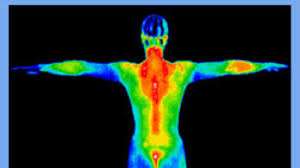Caffeine, a naturally occurring stimulant in coffee, tea, and energy drinks, is widely celebrated for its ability to boost alertness and energy.
Beyond these effects, caffeine has significant metabolic benefits, making it a popular component in weight loss strategies.
It stimulates thermogenesis—the body’s process of burning calories to produce heat—enhances fat oxidation by mobilizing fatty acids from adipose tissue, and influences appetite regulation by affecting hunger hormones like ghrelin and leptin.
These mechanisms collectively aid in achieving and maintaining a calorie deficit, a key factor in obesity reduction.
Research supports caffeine’s role in metabolic stimulation.
A study in The American Journal of Clinical Nutrition (Dulloo et al., 1999) found that caffeine can increase energy expenditure by up to 12% in lean individuals and 5% in obese individuals.
This article by leanandfit.info explores caffeine’s physiological effects, real-world success stories, and the scientific evidence that underscores its effectiveness as a natural metabolic booster.
Table of Contents
- Introduction to Caffeine and Metabolism
- The Role of Thermogenesis in Fat Loss
- How Caffeine Enhances Fat Oxidation
- Impact on Appetite Regulation
- Long-Term Metabolic Benefits of Caffeine
- Real-Life Examples: Caffeine’s Role in Weight Management
- Supporting Scientific Research
- FAQS on Caffeine Metabolism & Obesity Reduction
- Conclusion: Understanding Caffeine’s Role in Obesity Reduction
Introduction to Caffeine and Metabolism
Caffeine: the superhero of your morning routine and, surprisingly, your metabolism’s secret weapon.
While it is best known for jolting you awake and making Monday mornings tolerable, caffeine’s effects go far beyond your brain.
This natural stimulant teams up with your central nervous system (CNS) to turn your body into a calorie-burning machine, increasing energy expenditure and encouraging fat to pack its bags and leave.
Think of caffeine as a personal trainer for your metabolism—motivating it to work harder, burn calories, and tap into fat stores for fuel.
It is like giving your body a pep talk while you sip your latte.
Scientific studies, including research in The American Journal of Clinical Nutrition, confirm caffeine’s ability to stimulate thermogenesis and fat oxidation.
So, next time you reach for that cup of coffee, remember: it’s not just your brain saying thanks—it is your metabolism too.

The Role of Thermogenesis in Fat Loss
A quick look at this aspect:
What is Thermogenesis?
Thermogenesis is the body’s natural process of producing heat by burning calories, playing a crucial role in regulating energy balance and weight.
It is essentially your body’s internal furnace, working to keep you warm and metabolically active.
Caffeine, as a stimulant, revs up this process by triggering the release of catecholamines, such as adrenaline. These hormones enhance metabolic activity, causing the body to burn more calories even during periods of rest.
Scientific Insight:
A groundbreaking study published in The American Journal of Clinical Nutrition (Dulloo et al., 1999) demonstrated caffeine’s role in boosting thermogenesis.
Researchers found that caffeine increased thermogenic activity by 10–12% in lean individuals and 3–5% in those with obesity.
This difference highlights caffeine’s metabolic impact across varying body types.
By increasing energy expenditure, caffeine helps users burn additional calories throughout the day.
For someone consuming their morning coffee, this means their metabolism works just a bit harder, even when sitting at their desk or engaging in light activity.
While it is not a magic bullet, caffeine’s thermogenic properties make it a valuable tool in the fight against obesity when paired with a balanced lifestyle. It is quite similar to consuming green tea extract to boost your sluggish metabolism.

How Caffeine Enhances Fat Oxidation?
Your body fat tends to get oxidized when you consume caffein on a regular basis:
Fat Mobilization:
Caffeine acts as a catalyst for fat mobilization, making stored fatty acids in adipose tissue available for energy use.
This process is driven by caffeine’s ability to inhibit phosphodiesterase enzymes, which results in elevated levels of cyclic adenosine monophosphate (cAMP).
Increased cAMP activates hormone-sensitive lipase (HSL), an enzyme that breaks down stored fat through lipolysis.
As a result, fatty acids are released into the bloodstream, where they can be utilized as fuel by muscle cells during physical activity.
Increased Exercise Efficiency:
Caffeine not only mobilizes fat but also enhances exercise efficiency.
It shifts the body’s energy reliance from glycogen (carbohydrates) to fats, conserving carbohydrate stores for prolonged activity.
A study in Sports Medicine (Graham et al., 2001) demonstrated that caffeine significantly improves endurance and fat oxidation during exercise.
This dual action of mobilizing fat and improving energy utilization makes caffeine an effective ally in workouts aimed at fat loss.
Athletes and fitness enthusiasts often benefit from these effects, as caffeine enables them to perform longer and burn more fat during their sessions, amplifying the impact of physical activity on weight reduction.
Impact on Appetite Regulation
Here is how your daily cup of coffee impacts your hunger cravings:
Appetite Suppression:
Caffeine is not only a metabolic stimulant but also an effective appetite suppressant.
It interacts with hormones that regulate hunger, such as ghrelin and leptin.
Ghrelin, often called the “hunger hormone,” is known for signaling the brain to stimulate appetite.
Studies show that caffeine consumption reduces ghrelin levels, helping to curb hunger.
Simultaneously, caffeine enhances leptin sensitivity.
Leptin, the “satiety hormone,” signals the brain when the body is full, promoting a sense of satisfaction and reducing the desire to overeat.
Real-Life Example:
Anna, a 35-year-old nurse with a busy schedule, struggled to control midday cravings.
After incorporating a cup of green tea or coffee into her routine, she noticed a significant reduction in her hunger levels between meals.
This simple addition helped her avoid calorie-dense snacks and stick to her dietary goals.
Over time, Anna observed that the appetite-suppressing effects of caffeine complemented her weight loss efforts, keeping her energy stable during long shifts.

Long Term Metabolic Benefits of Caffeine
Here is how caffein assists you when you take it in the longer run:
Adaptive Thermogenesis:
Caffeine doesn’t just provide a one-time metabolic spark—it keeps the fire going.
While your body might adapt to caffeine over time, the ability of this stimulant to sustain fat oxidation remains impressive.
Think of it as a marathon runner rather than a sprinter: the initial energy burst may fade, but caffeine’s endurance in supporting thermogenesis ensures long-term benefits.
Research has shown that even with regular use, caffeine continues to contribute to calorie burning, albeit at a slightly reduced pace.
Improved Insulin Sensitivity:
Caffeine also flexes its metabolic muscles by improving insulin sensitivity, a crucial factor for maintaining healthy glucose metabolism.
For those at risk of obesity-related complications, this is a game-changer.
A landmark study published in Diabetes Care (van Dam et al., 2005) found that regular coffee drinkers had a significantly lower risk of developing type 2 diabetes—a condition closely tied to obesity.
This double-duty effect of burning fat while enhancing glucose regulation is why caffeine holds its ground as a metabolic ally.
Real-Life Takeaway:
Caffeine’s metabolic finesse is like a friend who helps you clean your house and balances your checkbook—multitasking at its finest.
John’s Weight Loss Journey
John, a 40-year-old software engineer, had struggled with weight gain due to his sedentary lifestyle and late-night coding sessions.
Looking for a natural energy boost, he began drinking a cup of black coffee before his morning runs.
Not only did the caffeine enhance his endurance, but it also increased his fat oxidation during exercise.
As a result, John found himself burning more calories and pushing further in his workouts. John did push-ups to develop upper body strength and lose weight naturally.
Over six months, this simple addition to his routine contributed to a 15-pound weight loss.
John credits the combination of exercise and caffeine for improving his stamina and jumpstarting his metabolism.
Emma’s Desk Job Strategy
Emma, a 29-year-old graphic designer, faced a common challenge: weight gain from sitting at a desk all day.
Instead of reaching for sugary snacks to combat afternoon slumps, Emma opted for unsweetened coffee.
This switch helped her cut hundreds of empty calories from her diet while keeping her alert and focused during work.
Over time, the appetite-suppressing effects of caffeine helped Emma reduce her overall caloric intake.
She clubbed this with intermittent fasting to reduce her daily calorie intake.
Coupled with light evening walks, she began shedding pounds steadily and achieved her fitness goals within a year, proving that small changes can yield big results.
Supporting Scientific Research
- Dulloo et al., 1999 (The American Journal of Clinical Nutrition): Highlighted caffeine’s role in increasing thermogenesis and energy expenditure.
- Graham et al., 2001 (Sports Medicine): Demonstrated caffeine’s effectiveness in enhancing fat oxidation during exercise.
- van Dam et al., 2005 (Diabetes Care): Linked caffeine consumption to reduced risk factors for obesity-related diabetes.
- Greenberg et al., 2006 (Obesity Reviews): Discussed caffeine’s impact on weight maintenance through fat metabolism and appetite control.
FAQS on Caffeine Metabolism & Obesity Reduction
Q-1: By what mechanisms does caffeine raise daily energy burn?
A-1: Caffeine blocks adenosine’s “slow down” signal and nudges the nervous system to release more catecholamines. Inside cells, this lifts cyclic AMP, which turns up heat production (thermogenesis) and unlocks stored fat (lipolysis). The result is a small but measurable bump in resting energy expenditure for a few hours after a typical coffee or tea.
Q-2: How big is the metabolism boost in real life?
A-2: A standard dose—roughly the caffeine in one to two cups of coffee—can lift resting calorie burn by about 3–5% for several hours. That’s modest per serving but repeatable across the day if timed thoughtfully. On its own, it won’t drive large losses, yet it can be a useful multiplier when paired with sensible nutrition and activity.
Q-3: Does caffeine shift the body toward burning more fat during exercise?
A-3: Often, yes. Pre-exercise caffeine increases the release of fatty acids into the bloodstream and can tilt fuel use toward fat during steady, submaximal efforts (think brisk walking or easy cycling). The effect is stronger when you haven’t just eaten a carb-heavy meal and when the dose is taken 30–60 minutes before activity.
Q-4: Can caffeine stimulate brown fat to produce more heat?
A-4: There’s emerging evidence that caffeine may enhance thermogenesis partly by activating brown adipose tissue—specialized fat that burns calories to create heat. Consider this a supporting pathway rather than the main driver. The everyday takeaway: caffeine can slightly raise heat production, but the total impact remains modest.
Q-5: What timing and dosing strategies work best for weight goals?
A-5: Keep it simple: 100–200 mg (about a small to medium coffee) with or after meals can nudge thermogenesis; a similar dose 30–60 minutes before a workout may enhance fat use and effort. Start low to gauge tolerance, avoid large late-day doses that disrupt sleep, and skip big carb loads immediately before pre-workout caffeine if fat-burning is the aim.
Q-6: What limits the benefits—and how do I keep it safe?
A-6: Tolerance builds with daily use, and side effects—jitters, reflux, palpitations, or poor sleep—can cancel any metabolic edge. Set a personal cutoff time (often early afternoon), cap total intake to what feels comfortable, and prioritize hydration. Most importantly, treat caffeine as a small assist: lasting fat loss still comes from consistent calorie control, adequate protein, and a mix of resistance and aerobic training.
Understanding Caffeine’s Role in Obesity Reduction
I have always thought of caffeine as my morning lifesaver, but little did I know it is also a secret weapon for tackling stubborn body fat.
Turns out, caffeine does not just wake me up—it cranks up my metabolism, helps my body burn fat more efficiently, and even keeps those pesky cravings in check.
Its thermogenic magic means I am burning more calories, even when I am just sitting at my desk pretending to be productive.
Sure, caffeine is not a miracle fix for weight loss, but when paired with a balanced diet and regular exercise, it is like having a personal cheerleader for my metabolism.
The science backs it up, and so do countless real-world success stories.
So, whether it is a strong cup of coffee or a refreshing green tea, caffeine has become my not-so-secret ally in the fight against body fat—and honestly, I am not mad about it.
References:

